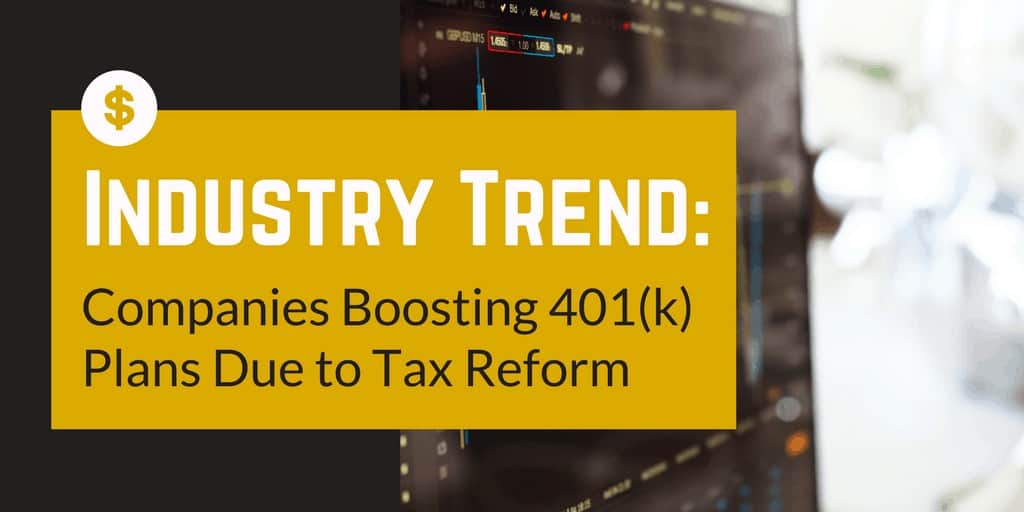
Industry Trend: Companies Boosting 401(k) Plans Due to Tax Reform
With the 2018 Tax Reform Bill passing in December 2017, some companies have responded with announcements of changes in their 401(k) matching policies and additional employer-sponsored benefits. Companies making headlines include:
- Aflac: Effective for 2018, the insurance company is raising a previous match of 50% of employee contributions up to 6% of salary to 100% of employee contribution up to 4% of salary. In addition, Aflac is making a one-time $500 401(k) contribution to its roughly 5,400 eligible employees. Combined with an employer-sponsored hospital and accident insurance plan as well as cancer insurance benefits, these changes are part of Aflac’s $250 million U.S. investment initiative over the next three to five years.
- SunTrust: Atlanta-based SunTrust Bank announced it will make a one-time contribution of 1% of pay to participants in the company’s 401k plan, in addition to match opportunities already in place. The deposit, which will be made March 15, 2018, is an action the company is hoping will provide sustainable, long-term benefits for its employees.
- Nationwide: Starting in early 2018, the insurance company will match 50% of the first 7% (up from 6%) of compensation, impacting approximately 33,000 employees. In addition, approximately 29,000 employees are receiving bonuses of $1,000.
- Visa: Effective February 2018, the global payment network company announced it will increase its 401(k) match to 10% of each employee’s salary base - an astounding 200% match, up to 5% of compensation. Previously, this match policy was capped at 3% of compensation.
These benefits come as a response to the 2018 Tax Reform Bill, which lowers the corporate tax rate from 35% down to 21%. In addition, no major changes to the general structure of qualified plans or amounts that can be contributed were included in the Tax Reform Bill. More companies are expected to follow with announcements to changes in wages and benefits, as these act as a key attraction and retention tool. While increases in 401(k) benefits offered by larger companies are harder to scale back in response to future changes, smaller companies may raise wages or give a one-time bonus. Whether companies choose to offer a one-time goodwill return of tax savings in the form of bonuses or make a tax-deferred 401(k) investment on behalf of plan participants, employee investment is a win-win for companies and employees.
For guidance in defined contribution plans, including 401(k), 403(b), and 11-K audits and check-ups, fiduciary plan best practices, and benefit plan design, please contact Moore Colson.
